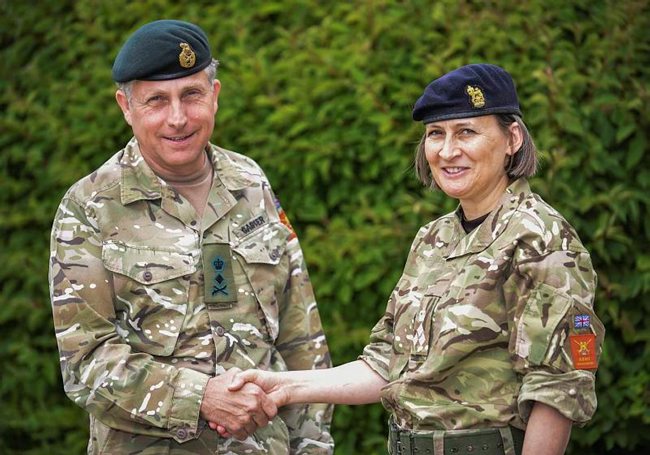The first national day for women was held in New York on 28th February 1909 and saw 15,000 women march together to demand better working hours, better pay and the right to vote. Just over 99 years later a lot has thankfully changed, but, with more to be achieved, what is now known across the globe as International Women’s Day acts as an important opportunity to reflect on and celebrate the significant contributions of women around the world and drive forward the agenda for global gender equality.
![Lucy Bogue, DIO Chief of Staff [Crown Copyright/MOD2018]](https://insideDIO.blog.gov.uk/wp-content/uploads/sites/29/2018/03/Lucy-Bogue2.jpg)
It's a man's world - or is it?
It’s no secret that defence and DIO has more men than women, particularly in senior positions. But this is changing. In the last six months alone, I have moved from being just one of two women on our Executive Committee, to now being one of five. This is hugely encouraging and of course needs to continue and be fostered at all levels of the organisation.

Fostering equality is, of course, not just a women’s issue. We will all benefit from true equality and men’s voices are crucial in driving forward the changes needed to achieve this, and open up a discussion about how we can work together to create a more equal, fair and supportive environment for all.
![The King's Troop, Royal Horse Artillery, is unusual in that it is nearly 50% female. [Crown Copyright/MOD2017]](https://insideDIO.blog.gov.uk/wp-content/uploads/sites/29/2018/03/KT-RHA-2.jpeg)
Steps Towards Equality
Creating a supportive working environment for both men and women is integral to achieving equality and DIO has begun taking positive steps in this direction by piloting our smarter working policies to this effect. We're working on the implementation and cultural acceptance of more flexible working arrangements for both men and women; I am already pleased to hear positive feedback from people on the advantages and benefits these changes are bringing to them personally.
![There are more men than women working in the Ministry of Defence, but we're working to ensure the workforce is more reflective of the population we serve. [Crown Copyright/MOD2017]](https://insideDIO.blog.gov.uk/wp-content/uploads/sites/29/2018/03/45162265-1024x690.jpg)
Life as a Working Parent
Creating a supportive workplace is something that I feel hugely passionate about, driven by my personal career experiences as a working mother. Raising a family and managing a career can be hard, particularly as a woman, facing the many pressures placed on us by society to “have it all” - being the last in the office whilst also acting as the primary care giver at home.
I was only able to manage this with two important things supporting me along the way.
The first was an understanding boss and supportive work place culture. Having a boss that recognises the importance of flexible working and understands that no matter where you are you will always get the job done, is crucial. It worked for me, as it meant I was able to work outside of the usual 9-5 working hours without feeling guilty and could be agile about where I physically needed to be.
The second was having a supportive family who caught the bits that I dropped (which is something they definitely still do). I felt guilty when I didn’t make a sports day, or couldn’t do school pick up, or worked through the school holidays, but I was mostly able to be there when it really mattered.
This last point is crucial. Offering flexible working is clearly important and is increasingly becoming the norm across many organisations. However, only by encouraging flexible working for men as well, normalising men’s roles as shared or primary care givers at home, can equality truly be achieved.
International Women’s Day represents different things to different people all over the world. We are lucky in the UK to be able to use it as a day to reflect on and celebrate the huge leaps women have taken over the last 100 years, something that cannot be said for women in some countries. To me, it’s not just about women’s rights, it’s about creating an environment that promotes and supports the ideas of equality for all, both men and women, and how these can benefit our society as a whole and improve the lives of those within it. I am proud of what we have achieved, but there is so much more that DIO and the broader defence community can do. So, let’s start today!
![Numbers of women serving in the Royal Air Force, British Army and Royal Navy are increasing. [Crown Copyright/MOD2010]](https://insideDIO.blog.gov.uk/wp-content/uploads/sites/29/2018/03/Tri-service-2.jpeg)